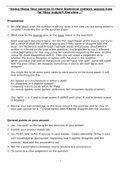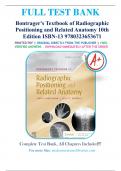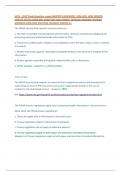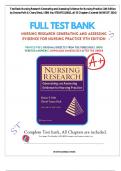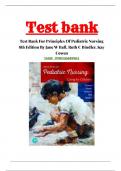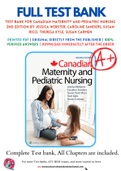Essay
"Using sources these four sources in their historical context, assess how far they support the view that Magna Carta did not solve the differences between King John and the Barons" Model Essay
- Course
- Institution
A model, 25 mark A grade essay on John and Magna Carta, analysing sources
[Show more]
